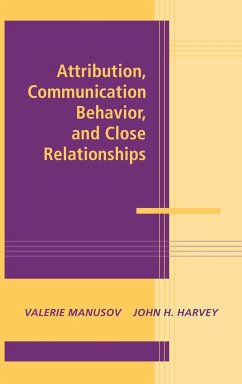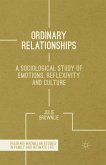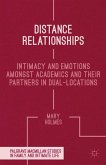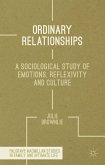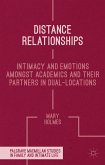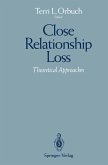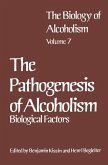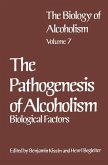Valerie Manusov / H. Harvey (eds.)
Attribution, Communication Behavior, and Close Relationships
Herausgeber: Manusov, Valerie; Harvey, John H.
Valerie Manusov / H. Harvey (eds.)
Attribution, Communication Behavior, and Close Relationships
Herausgeber: Manusov, Valerie; Harvey, John H.
- Gebundenes Buch
- Merkliste
- Auf die Merkliste
- Bewerten Bewerten
- Teilen
- Produkt teilen
- Produkterinnerung
- Produkterinnerung
This 2001 book provides a scholarly examination of communication within close relationships.
Andere Kunden interessierten sich auch für
![Ordinary Relationships Ordinary Relationships]() J. BrownlieOrdinary Relationships39,99 €
J. BrownlieOrdinary Relationships39,99 €![Distance Relationships Distance Relationships]() Mary HolmesDistance Relationships39,99 €
Mary HolmesDistance Relationships39,99 €![Ordinary Relationships Ordinary Relationships]() J. BrownlieOrdinary Relationships39,99 €
J. BrownlieOrdinary Relationships39,99 €![Distance Relationships Distance Relationships]() Mary HolmesDistance Relationships39,99 €
Mary HolmesDistance Relationships39,99 €![Close Relationship Loss Close Relationship Loss]() Close Relationship Loss111,99 €
Close Relationship Loss111,99 €![Attributions, Accounts, and Close Relationships Attributions, Accounts, and Close Relationships]() Attributions, Accounts, and Close Relationships77,99 €
Attributions, Accounts, and Close Relationships77,99 €![Attributions, Accounts, and Close Relationships Attributions, Accounts, and Close Relationships]() John H. Harvey / Terri L. Orbuch / Ann L. Weber (Hgg.)Attributions, Accounts, and Close Relationships81,99 €
John H. Harvey / Terri L. Orbuch / Ann L. Weber (Hgg.)Attributions, Accounts, and Close Relationships81,99 €-
-
-
This 2001 book provides a scholarly examination of communication within close relationships.
Hinweis: Dieser Artikel kann nur an eine deutsche Lieferadresse ausgeliefert werden.
Hinweis: Dieser Artikel kann nur an eine deutsche Lieferadresse ausgeliefert werden.
Produktdetails
- Produktdetails
- Verlag: Cambridge University Press
- Seitenzahl: 408
- Erscheinungstermin: 31. Dezember 2009
- Englisch
- Abmessung: 235mm x 157mm x 28mm
- Gewicht: 810g
- ISBN-13: 9780521770897
- ISBN-10: 0521770890
- Artikelnr.: 26372120
- Herstellerkennzeichnung
- Libri GmbH
- Europaallee 1
- 36244 Bad Hersfeld
- gpsr@libri.de
- Verlag: Cambridge University Press
- Seitenzahl: 408
- Erscheinungstermin: 31. Dezember 2009
- Englisch
- Abmessung: 235mm x 157mm x 28mm
- Gewicht: 810g
- ISBN-13: 9780521770897
- ISBN-10: 0521770890
- Artikelnr.: 26372120
- Herstellerkennzeichnung
- Libri GmbH
- Europaallee 1
- 36244 Bad Hersfeld
- gpsr@libri.de
List of contributors; Introduction Valerie Manusov; Part I. Attribution,
Affect, and Well-Being in Relationships: 1. Affective influences on
communication and attributions in relationships Joseph P. Forgas; 2.
Communication and attribution: an exploration of the effect of music and
mood on intimate couples' verbal and nonverbal conflict resolution
behaviors James M. Honeycutt and Michael E. Eidenmuller; 3. Making sense of
hurtful interactions in close relationships: when hurt feelings create
distance Anita L. Vangelisti; 4. The association between accounts of
relationship development events and relational and personal well-being
Jeanne Flora and Chris Segrin; Commentary: affect, attribution, and
communication: uniting interaction episodes and global relationship
judgments Denise Haunani Solomon; Part II. Attributions and Communication
in Dating and Marital Relationships: 5. Attributions, communication, and
the development of a marital identity Catherine A. Surra and Denise S.
Bartell; 6. Causal attributions of relationship quality Ellen Berscheid,
Jason Lopes, Hilary Ammazzalorso, and Nora Langenfeld; 7. The content of
attributions in couples' communication Valerie Manusov and Jody Koenig; 8.
Handling pressures for change in marriage: making attributions for
relational dialectics Patricia Noller, Judith A. Feeney and Anita
Blakely-Smith; 9. The role of marital behavior in the longitudinal
association between attribution and marital quality Matthew D. Johnson,
Benjamin R. Karney, Ronald Rogge, and Thomas N. Bradbury; 10. Stepping into
the stream of thought: cognition during marital conflict Alan Sillars,
Linda J. Roberts, Tim Dun, and Kenneth Leonard; Commentary: thanks for the
curry: advancing boldly into a new millennium of relationship attribution
research Frank D. Fincham; Part III. New Directions and Contexts for
Attributions and Communication: 11. Attributions and regulative
communications by parents participating in a community-based child
physical; abuse prevention program Steven R. Wilson and Ellen E. Whipple;
12. 'True lies': children's abuse history and power attributions as
influences on deception detection Daphne Blunt Bugental, William Shennum,
Mark Frank, and Paul Ekman; 13. HIV-infected persons' attributions for the
disclosure of the seropositive diagnosis to significant others Valerian J.
Dergla and Barbara A. Winstead; 14. Attributions about communications
styles and strategies: prediciting dating couples' safe-sex discussions and
relationship satisfaction Candida C. Peterson, Ashlea Troth, Cynthia
Gallois, and Judith Feeney; 15. Why do people have affairs? Recent research
and future directions about attributions for extramarital involvement David
Atkins, Sona Dimidjian, and Neil Jacobson; 16. Attribution in social and
parasocial relationships Rebecca B. Rubin and Alan M. Rubin; Commentary:
extending attribution theory: contributions and cautions Sandra Metts; Part
IV. A Discussion of Attribution Theory for Close Relationships: 17. The
status of attribution theory qua theory in personal relationships Brian H.
Spitzberg; 18. Are there superior options? Commentary on Spizberg's 'the
status of attribution theory qua theory in personal relationships' John H.
Harvey and Julia Ormazu; Index.
Affect, and Well-Being in Relationships: 1. Affective influences on
communication and attributions in relationships Joseph P. Forgas; 2.
Communication and attribution: an exploration of the effect of music and
mood on intimate couples' verbal and nonverbal conflict resolution
behaviors James M. Honeycutt and Michael E. Eidenmuller; 3. Making sense of
hurtful interactions in close relationships: when hurt feelings create
distance Anita L. Vangelisti; 4. The association between accounts of
relationship development events and relational and personal well-being
Jeanne Flora and Chris Segrin; Commentary: affect, attribution, and
communication: uniting interaction episodes and global relationship
judgments Denise Haunani Solomon; Part II. Attributions and Communication
in Dating and Marital Relationships: 5. Attributions, communication, and
the development of a marital identity Catherine A. Surra and Denise S.
Bartell; 6. Causal attributions of relationship quality Ellen Berscheid,
Jason Lopes, Hilary Ammazzalorso, and Nora Langenfeld; 7. The content of
attributions in couples' communication Valerie Manusov and Jody Koenig; 8.
Handling pressures for change in marriage: making attributions for
relational dialectics Patricia Noller, Judith A. Feeney and Anita
Blakely-Smith; 9. The role of marital behavior in the longitudinal
association between attribution and marital quality Matthew D. Johnson,
Benjamin R. Karney, Ronald Rogge, and Thomas N. Bradbury; 10. Stepping into
the stream of thought: cognition during marital conflict Alan Sillars,
Linda J. Roberts, Tim Dun, and Kenneth Leonard; Commentary: thanks for the
curry: advancing boldly into a new millennium of relationship attribution
research Frank D. Fincham; Part III. New Directions and Contexts for
Attributions and Communication: 11. Attributions and regulative
communications by parents participating in a community-based child
physical; abuse prevention program Steven R. Wilson and Ellen E. Whipple;
12. 'True lies': children's abuse history and power attributions as
influences on deception detection Daphne Blunt Bugental, William Shennum,
Mark Frank, and Paul Ekman; 13. HIV-infected persons' attributions for the
disclosure of the seropositive diagnosis to significant others Valerian J.
Dergla and Barbara A. Winstead; 14. Attributions about communications
styles and strategies: prediciting dating couples' safe-sex discussions and
relationship satisfaction Candida C. Peterson, Ashlea Troth, Cynthia
Gallois, and Judith Feeney; 15. Why do people have affairs? Recent research
and future directions about attributions for extramarital involvement David
Atkins, Sona Dimidjian, and Neil Jacobson; 16. Attribution in social and
parasocial relationships Rebecca B. Rubin and Alan M. Rubin; Commentary:
extending attribution theory: contributions and cautions Sandra Metts; Part
IV. A Discussion of Attribution Theory for Close Relationships: 17. The
status of attribution theory qua theory in personal relationships Brian H.
Spitzberg; 18. Are there superior options? Commentary on Spizberg's 'the
status of attribution theory qua theory in personal relationships' John H.
Harvey and Julia Ormazu; Index.
List of contributors; Introduction Valerie Manusov; Part I. Attribution,
Affect, and Well-Being in Relationships: 1. Affective influences on
communication and attributions in relationships Joseph P. Forgas; 2.
Communication and attribution: an exploration of the effect of music and
mood on intimate couples' verbal and nonverbal conflict resolution
behaviors James M. Honeycutt and Michael E. Eidenmuller; 3. Making sense of
hurtful interactions in close relationships: when hurt feelings create
distance Anita L. Vangelisti; 4. The association between accounts of
relationship development events and relational and personal well-being
Jeanne Flora and Chris Segrin; Commentary: affect, attribution, and
communication: uniting interaction episodes and global relationship
judgments Denise Haunani Solomon; Part II. Attributions and Communication
in Dating and Marital Relationships: 5. Attributions, communication, and
the development of a marital identity Catherine A. Surra and Denise S.
Bartell; 6. Causal attributions of relationship quality Ellen Berscheid,
Jason Lopes, Hilary Ammazzalorso, and Nora Langenfeld; 7. The content of
attributions in couples' communication Valerie Manusov and Jody Koenig; 8.
Handling pressures for change in marriage: making attributions for
relational dialectics Patricia Noller, Judith A. Feeney and Anita
Blakely-Smith; 9. The role of marital behavior in the longitudinal
association between attribution and marital quality Matthew D. Johnson,
Benjamin R. Karney, Ronald Rogge, and Thomas N. Bradbury; 10. Stepping into
the stream of thought: cognition during marital conflict Alan Sillars,
Linda J. Roberts, Tim Dun, and Kenneth Leonard; Commentary: thanks for the
curry: advancing boldly into a new millennium of relationship attribution
research Frank D. Fincham; Part III. New Directions and Contexts for
Attributions and Communication: 11. Attributions and regulative
communications by parents participating in a community-based child
physical; abuse prevention program Steven R. Wilson and Ellen E. Whipple;
12. 'True lies': children's abuse history and power attributions as
influences on deception detection Daphne Blunt Bugental, William Shennum,
Mark Frank, and Paul Ekman; 13. HIV-infected persons' attributions for the
disclosure of the seropositive diagnosis to significant others Valerian J.
Dergla and Barbara A. Winstead; 14. Attributions about communications
styles and strategies: prediciting dating couples' safe-sex discussions and
relationship satisfaction Candida C. Peterson, Ashlea Troth, Cynthia
Gallois, and Judith Feeney; 15. Why do people have affairs? Recent research
and future directions about attributions for extramarital involvement David
Atkins, Sona Dimidjian, and Neil Jacobson; 16. Attribution in social and
parasocial relationships Rebecca B. Rubin and Alan M. Rubin; Commentary:
extending attribution theory: contributions and cautions Sandra Metts; Part
IV. A Discussion of Attribution Theory for Close Relationships: 17. The
status of attribution theory qua theory in personal relationships Brian H.
Spitzberg; 18. Are there superior options? Commentary on Spizberg's 'the
status of attribution theory qua theory in personal relationships' John H.
Harvey and Julia Ormazu; Index.
Affect, and Well-Being in Relationships: 1. Affective influences on
communication and attributions in relationships Joseph P. Forgas; 2.
Communication and attribution: an exploration of the effect of music and
mood on intimate couples' verbal and nonverbal conflict resolution
behaviors James M. Honeycutt and Michael E. Eidenmuller; 3. Making sense of
hurtful interactions in close relationships: when hurt feelings create
distance Anita L. Vangelisti; 4. The association between accounts of
relationship development events and relational and personal well-being
Jeanne Flora and Chris Segrin; Commentary: affect, attribution, and
communication: uniting interaction episodes and global relationship
judgments Denise Haunani Solomon; Part II. Attributions and Communication
in Dating and Marital Relationships: 5. Attributions, communication, and
the development of a marital identity Catherine A. Surra and Denise S.
Bartell; 6. Causal attributions of relationship quality Ellen Berscheid,
Jason Lopes, Hilary Ammazzalorso, and Nora Langenfeld; 7. The content of
attributions in couples' communication Valerie Manusov and Jody Koenig; 8.
Handling pressures for change in marriage: making attributions for
relational dialectics Patricia Noller, Judith A. Feeney and Anita
Blakely-Smith; 9. The role of marital behavior in the longitudinal
association between attribution and marital quality Matthew D. Johnson,
Benjamin R. Karney, Ronald Rogge, and Thomas N. Bradbury; 10. Stepping into
the stream of thought: cognition during marital conflict Alan Sillars,
Linda J. Roberts, Tim Dun, and Kenneth Leonard; Commentary: thanks for the
curry: advancing boldly into a new millennium of relationship attribution
research Frank D. Fincham; Part III. New Directions and Contexts for
Attributions and Communication: 11. Attributions and regulative
communications by parents participating in a community-based child
physical; abuse prevention program Steven R. Wilson and Ellen E. Whipple;
12. 'True lies': children's abuse history and power attributions as
influences on deception detection Daphne Blunt Bugental, William Shennum,
Mark Frank, and Paul Ekman; 13. HIV-infected persons' attributions for the
disclosure of the seropositive diagnosis to significant others Valerian J.
Dergla and Barbara A. Winstead; 14. Attributions about communications
styles and strategies: prediciting dating couples' safe-sex discussions and
relationship satisfaction Candida C. Peterson, Ashlea Troth, Cynthia
Gallois, and Judith Feeney; 15. Why do people have affairs? Recent research
and future directions about attributions for extramarital involvement David
Atkins, Sona Dimidjian, and Neil Jacobson; 16. Attribution in social and
parasocial relationships Rebecca B. Rubin and Alan M. Rubin; Commentary:
extending attribution theory: contributions and cautions Sandra Metts; Part
IV. A Discussion of Attribution Theory for Close Relationships: 17. The
status of attribution theory qua theory in personal relationships Brian H.
Spitzberg; 18. Are there superior options? Commentary on Spizberg's 'the
status of attribution theory qua theory in personal relationships' John H.
Harvey and Julia Ormazu; Index.

